
Eimsbüttel: The Heart of Hamburg's Authentic Charm
Nestled in the northwestern part of Hamburg, Eimsbüttel is a vibrant and diverse neighborhood that captures the essence of German culture and urban charm. This area, known for its tree-lined streets and beautiful old buildings, offers a unique blend of classic architecture and modern amenities. Eimsbüttel is a great place to experience the authentic lifestyle of Hamburg's residents. Eimsbüttel is dotted with cozy cafes, trendy boutiques, and delightful eateries, making it an ideal spot for food enthusiasts and shoppers alike. The neighborhood's weekly markets, such as the Isemarkt, are a must-visit, offering fresh produce, delicious snacks, and handmade crafts. For those who enjoy outdoor activities, the parks and green spaces like the Eimsbütteler Park and Schanzenpark provide a tranquil escape from the city's hustle and bustle. Cultural attractions in Eimsbüttel include the famous Kaifu-Bad, a historic swimming complex that dates back to the early 20th century. Art lovers will appreciate the neighborhood's galleries and unique street art, which contribute to its creative vibe. Whether you're exploring its historic streets or mingling with locals at a café, Eimsbüttel promises an enriching and memorable experience for every visitor.
Local tips in Eimsbüttel
- Visit the Isemarkt on Tuesdays and Fridays for fresh local produce and unique finds.
- Take a leisurely stroll through Eimsbütteler Park for a relaxing afternoon.
- Check out the Kaifu-Bad for a swim in a historic setting.
- Explore the local cafes and try a Franzbrötchen, a delicious local pastry.
- Look out for street art and small galleries to get a taste of Eimsbüttel's creative side.
Eimsbüttel: The Heart of Hamburg's Authentic Charm
Nestled in the northwestern part of Hamburg, Eimsbüttel is a vibrant and diverse neighborhood that captures the essence of German culture and urban charm. This area, known for its tree-lined streets and beautiful old buildings, offers a unique blend of classic architecture and modern amenities. Eimsbüttel is a great place to experience the authentic lifestyle of Hamburg's residents. Eimsbüttel is dotted with cozy cafes, trendy boutiques, and delightful eateries, making it an ideal spot for food enthusiasts and shoppers alike. The neighborhood's weekly markets, such as the Isemarkt, are a must-visit, offering fresh produce, delicious snacks, and handmade crafts. For those who enjoy outdoor activities, the parks and green spaces like the Eimsbütteler Park and Schanzenpark provide a tranquil escape from the city's hustle and bustle. Cultural attractions in Eimsbüttel include the famous Kaifu-Bad, a historic swimming complex that dates back to the early 20th century. Art lovers will appreciate the neighborhood's galleries and unique street art, which contribute to its creative vibe. Whether you're exploring its historic streets or mingling with locals at a café, Eimsbüttel promises an enriching and memorable experience for every visitor.
Iconic landmarks you can’t miss
Eimsbütteler Park
Discover tranquility in Hamburg's Eimsbütteler Park: a charming urban oasis with a scenic pond, lush greenery, and family-friendly amenities, perfect for a relaxing escape.
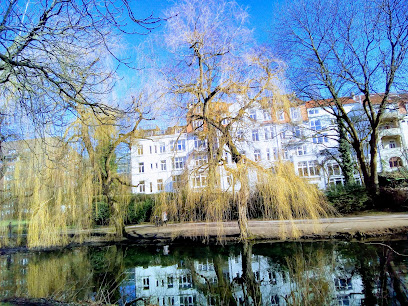
Wehbers Park
Experience the tranquility of Wehbers Park, a serene escape in Hamburg's Eimsbüttel, perfect for leisurely strolls and relaxing picnics.
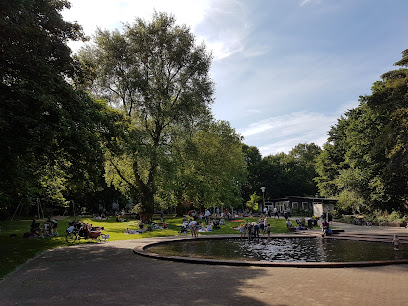
Hamburg-Haus
Experience the heart of Eimsbüttel at Hamburg-Haus, a vibrant community and cultural center offering diverse events, a public library, and a welcoming space for all ages and backgrounds.
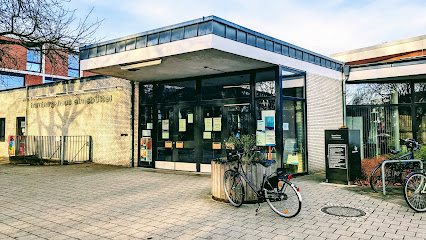
Stadtpark Am Wasserturm
Discover Hamburg's Stadtpark Am Wasserturm: A vibrant green oasis blending nature, history, and recreation, crowned by the iconic Planetarium, offering a unique urban escape.
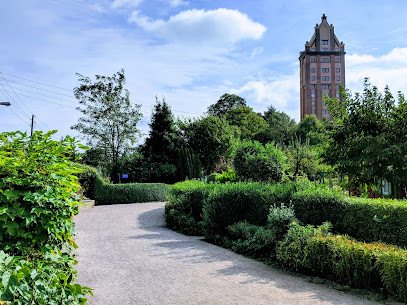
Alte Eiche
Discover Alte Eiche in Hamburg-Stellingen: A historic community rooted in compassion, care, and a deep connection to its natural surroundings, offering a unique glimpse into the city's social history.
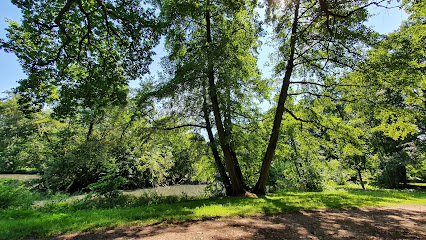
Kunstkombinat
Discover Hamburg's vibrant contemporary art scene at Kunstkombinat, a dynamic space fostering creativity and collaboration in the heart of Eimsbüttel, showcasing diverse artistic expressions.
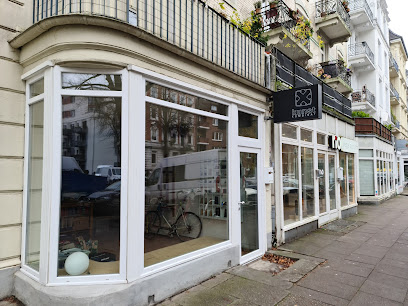
Unmissable attractions to see
Miniatur Wunderland
Explore Miniatur Wunderland, the world's largest model railway in Hamburg, showcasing breathtaking landscapes and intricate designs for all ages.
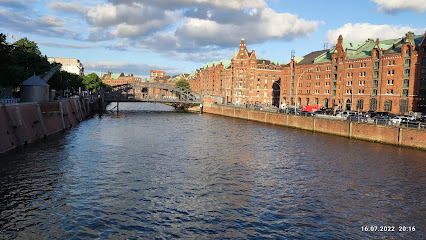
Hagenbeck Zoo
Explore Hagenbeck Zoo in Hamburg, where vibrant wildlife and an impressive aquarium await. A perfect family-friendly adventure in a natural setting.
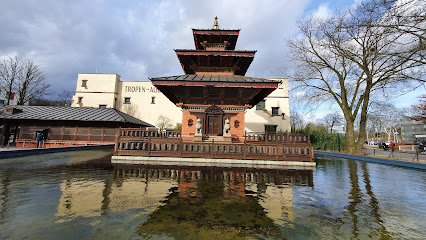
Planten un Blomen
Discover the beauty of Planten un Blomen, Hamburg's enchanting park featuring stunning gardens, cultural events, and serene landscapes.

Tropen-Aquarium am Tierpark Hagenbeck
Discover the enchanting Tropen-Aquarium am Tierpark Hagenbeck in Hamburg, where tropical ecosystems and exotic creatures come alive in an immersive experience.
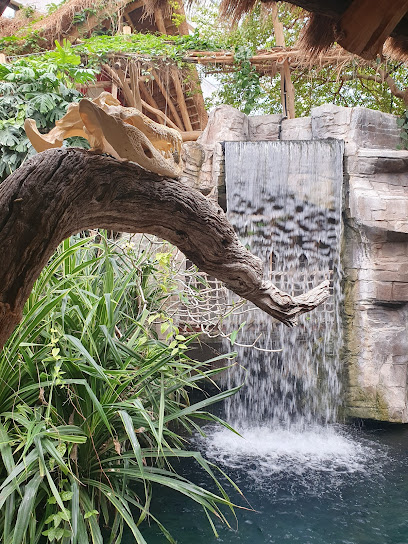
Schanzenturm
Discover the historical Schanzenturm in Hamburg, a landmark offering stunning views and rich cultural heritage.
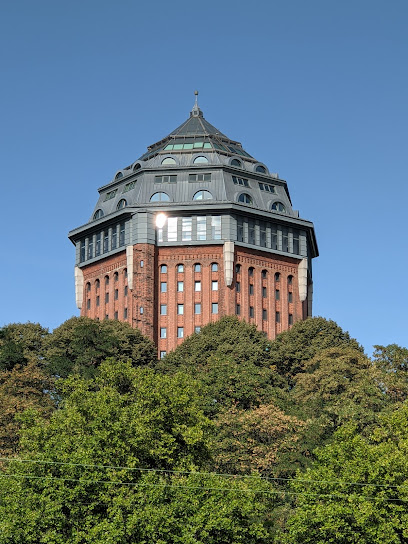
Totempfähle
Explore the cultural heritage and artistry of Totempfähle in Hamburg's Stellingen Tierpark, where history and beauty intertwine.
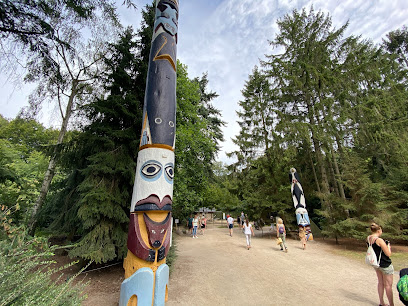
Alte Eiche
Explore Alte Eiche, a charming tourist attraction in Hamburg's Eimsbüttel borough, where history and nature blend beautifully.
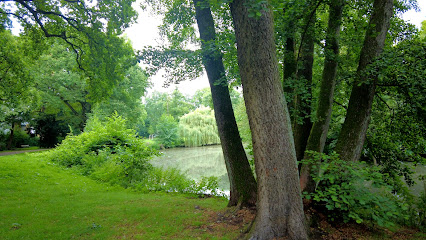
Kunstkombinat
Explore the vibrant art scene at Kunstkombinat, a cultural gem in Hamburg showcasing local talent and creative innovation.
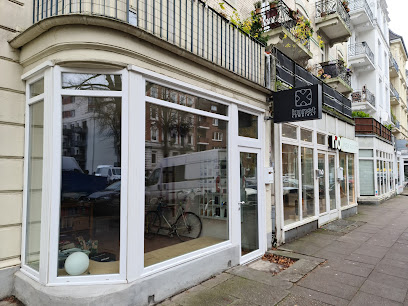
Brunnen im Hof
Discover the hidden tranquility of Brunnen im Hof, a charming fountain in Hamburg's Eimsbüttel district, perfect for relaxation and reflection.

Skulptur
Discover the enchanting world of modern art at Skulptur, a premier tourist attraction in Hamburg, blending creativity with nature in an inspiring setting.
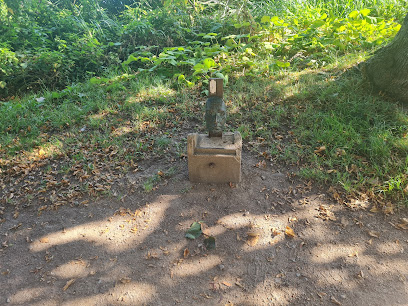
Essential places to dine
Restaurant L´Orient
Discover exquisite Lebanese cuisine at Restaurant L'Orient in Hamburg – where every dish tells a story.
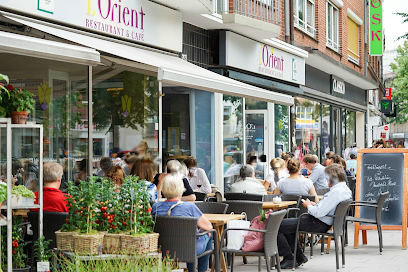
La Paz Tapas Restaurant & Weinbar
Experience authentic Spanish tapas and fine wines at La Paz Tapas Restaurant & Weinbar in Hamburg's Eimsbüttel district.
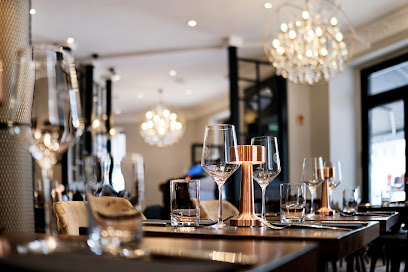
Mazza Hamburg
Experience authentic Syrian and Lebanese flavors at Mazza Hamburg, where every dish tells a story of tradition and taste.
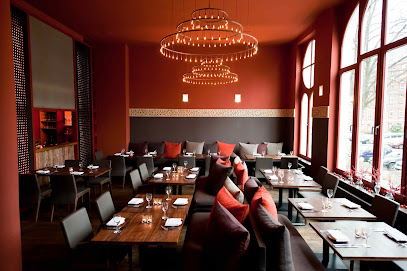
Witwenball Küche & Wein
Discover exquisite European fusion cuisine and fine wines at Witwenball Küche & Wein in Hamburg's Eimsbüttel district.
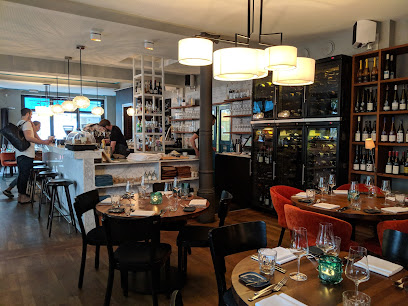
Brüdigams
Experience culinary artistry at Brüdigams, where modern European cuisine meets elegant dining in Hamburg's charming Eimsbüttel district.
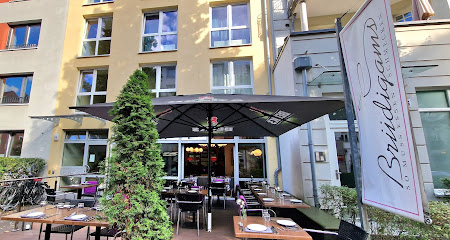
Alpenkantine
Discover the rich flavors of Austria at Alpenkantine in Hamburg - where tradition meets modern culinary delights.
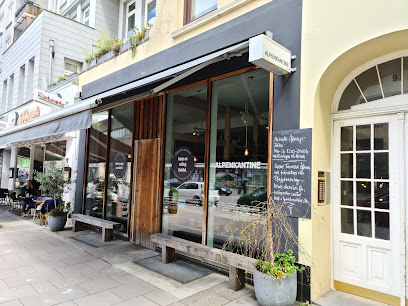
Jellyfish
Discover the exquisite flavors of seafood at Jellyfish, Hamburg's premier fine dining destination offering innovative dishes in an elegant setting.
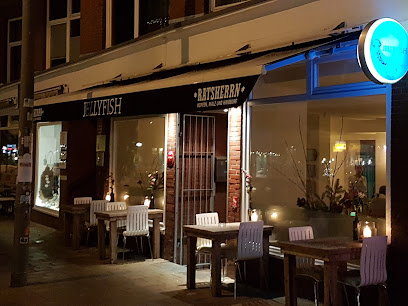
Azeitona Eimsbüttel
Discover Azeitona Eimsbüttel: Hamburg's delightful vegetarian restaurant offering fresh Mediterranean flavors in a cozy setting.
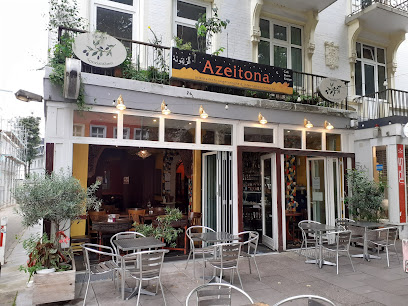
Heimatjuwel
Discover the essence of fine dining at Heimatjuwel, where local flavors meet exceptional culinary craftsmanship in Hamburg.
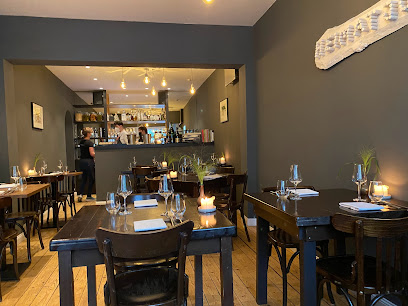
Little Buddha Hamburg
Experience authentic Nepalese flavors at Little Buddha Hamburg – a must-visit Asian restaurant offering delightful vegetarian options.
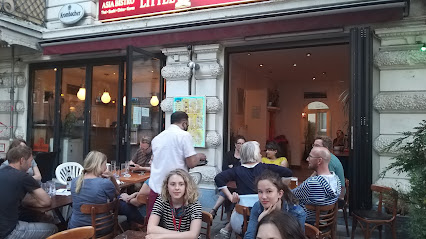
Markets, malls and hidden boutiques
GALERIA Hamburg Eimsbüttel
Explore GALERIA Hamburg Eimsbüttel, your ultimate shopping destination for fashion, homeware, and exclusive local products in the heart of Hamburg.
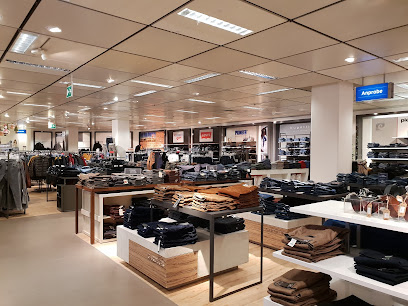
Flying Tiger Copenhagen
Explore the whimsical world of Flying Tiger Copenhagen in Hamburg, where creativity meets affordability in a vibrant gift shop experience.
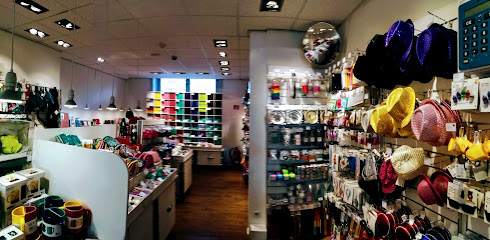
All My Friends - Kreativkaufhaus
Discover unique gifts and local artistry at All My Friends - a charming boutique in Hamburg's Altona district.
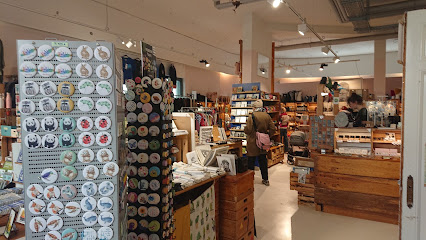
Frau Hansen
Explore the delightful gift shop Frau Hansen in Hamburg, where unique treasures and local charm await every visitor.
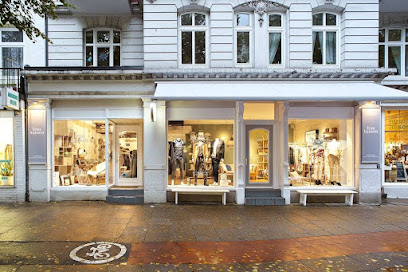
Villa Sophie Label Store Hamburg
Explore Villa Sophie Label Store in Hamburg: a chic boutique offering curated fashion for the stylish traveler.
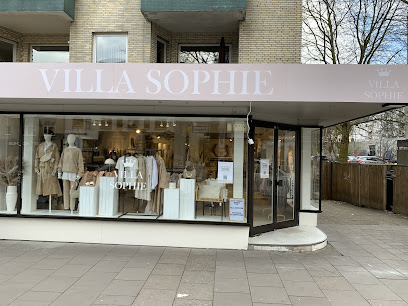
Die Pampi
Explore Die Pampi in Hamburg for unique gifts and fashionable accessories, showcasing local craftsmanship in a vibrant atmosphere.
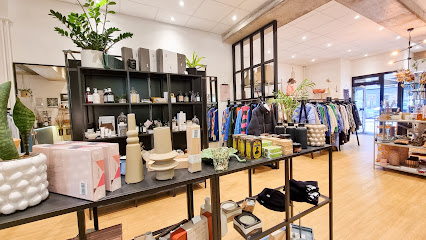
Hello Braren Gröhnke - Designermode aus Hamburg
Explore the elegance of women's fashion at Hello Braren Gröhnke in Hamburg, where style meets sophistication in every piece.
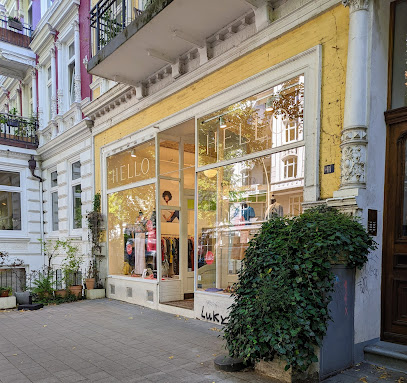
Müller´s Hamburg
Explore Müller´s Hamburg, a stylish clothing store in Eimsbüttel offering a unique selection of modern fashion for every taste.
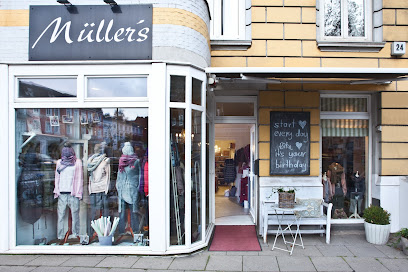
nachhaltique
Explore sustainable fashion at Nachhaltique, a unique clothing store in Hamburg offering stylish options for eco-conscious shoppers.
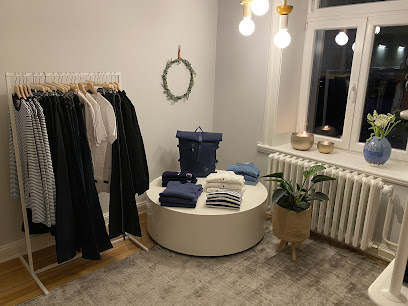
Unique Mash
Discover Unique Mash in Hamburg: a charming store filled with distinctive gifts and local treasures that capture the city's creative spirit.
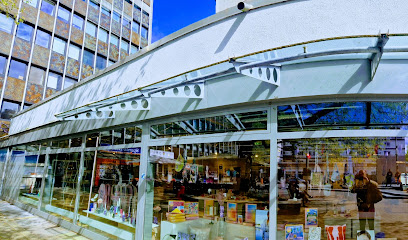
Essential bars & hidden hideouts
THE BOILERMAN BAR
Discover the unique charm of The Boilerman Bar in Hamburg, where expertly crafted cocktails and a cozy atmosphere await you.
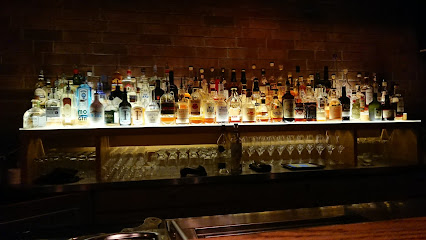
Rye & Dry
Discover the vibrant cocktail scene at Rye & Dry, Hamburg's premier cocktail bar, offering expertly crafted drinks in a stylish atmosphere.
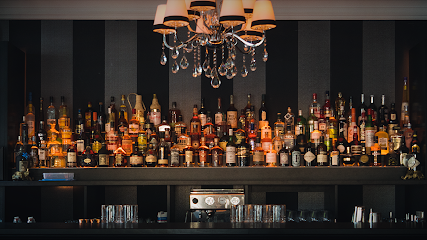
Mr. Ape
Experience the lively atmosphere and creative cocktails at Mr. Ape, Hamburg's hotspot for nightlife and mixology.
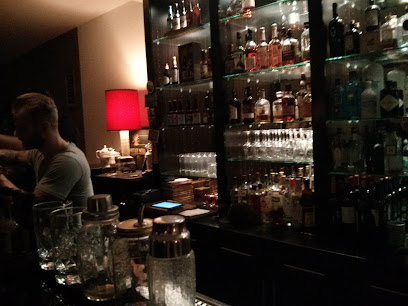
Q-Bar Eimsbüttel
Discover the vibrant Q-Bar Eimsbüttel, a perfect blend of cocktails, BBQ, and a lively atmosphere in the heart of Hamburg.
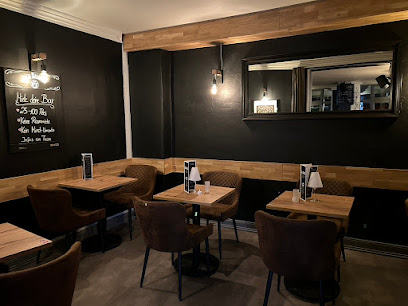
Mathilde Bar Eimsbüttel
Discover Mathilde Bar Eimsbüttel, a cozy pub in Hamburg offering a diverse drink menu and a lively atmosphere perfect for socializing and unwinding.
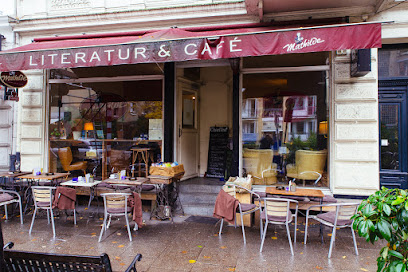
Auster Bar
Discover Auster Bar in Eimsbüttel, Hamburg – a cozy bar offering an extensive drink selection and a welcoming atmosphere for all visitors.
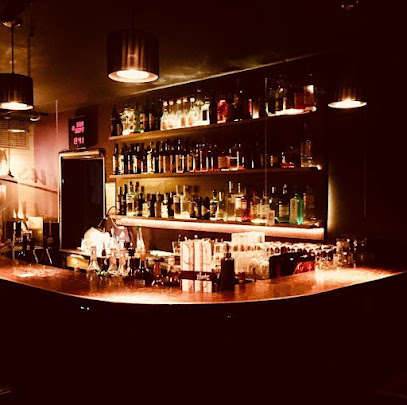
CRAZY ANGELS - Sports Bar
Experience the thrill of live sports in a vibrant atmosphere at CRAZY ANGELS Sports Bar in Hamburg, where every game is an event.
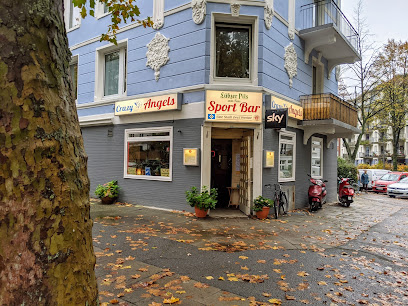
All Bar Hamburg
Discover the vibrant nightlife of Hamburg at All Bar Hamburg, where delightful drinks and a warm atmosphere await.
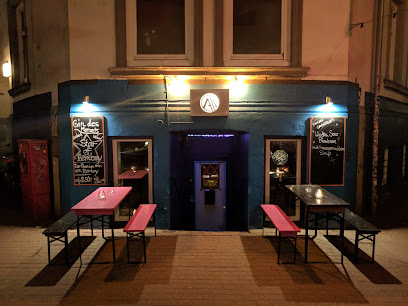
Chrissi's
Discover the essence of Hamburg nightlife at Chrissi's, a cozy bar in Eimsbüttel offering unique drinks and a welcoming atmosphere.
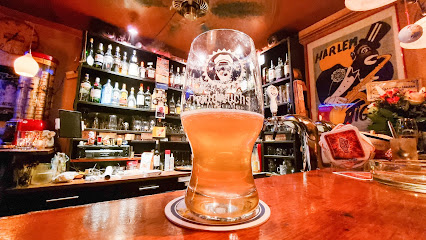
Crazy Devils
Experience the vibrant nightlife of Hamburg at Crazy Devils, a lively bar known for its unique cocktails and welcoming atmosphere.
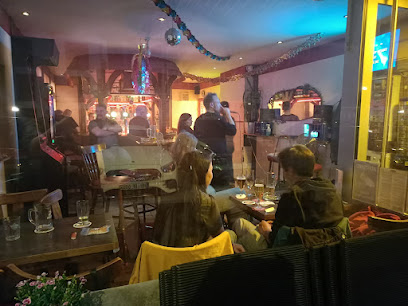
Local Phrases
-
- HelloMoin
[moin] - GoodbyeTschüss
[tʃʏs] - YesJa
[ja] - NoNein
[naɪn] - Please/You're welcomeBitte
[ˈbɪtə] - Thank youDanke
[ˈdaŋkə] - Excuse me/SorryEntschuldigung
[ɛntˈʃʊldɪɡʊŋ] - How are you?Wie geht es Ihnen?
[vi ɡeːt ɛs ˈɪnən] - Fine. And you?Gut. Und Ihnen?
[ɡuːt ʊnt ˈɪnən] - Do you speak English?Sprechen Sie Englisch?
[ˈʃpʁɛçən ziː ˈʔɛŋlɪʃ] - I don't understandIch verstehe nicht
[ɪç fɛɐ̯ˈʃteːə nɪçt]
- HelloMoin
-
- I'd like to see the menu, pleaseIch möchte bitte die Speisekarte sehen
[ɪç ˈmøːxtə ˈbɪtə diː ˈʃpaɪzəˌkaʁtə ˈzeːən] - I don't eat meatIch esse kein Fleisch
[ɪç ˈɛsə kaɪn flaɪʃ] - Cheers!Prost!
[pʁɔst] - I would like to pay, pleaseIch möchte bitte bezahlen
[ɪç ˈmøːxtə ˈbɪtə bəˈʦaːlən]
- I'd like to see the menu, pleaseIch möchte bitte die Speisekarte sehen
-
- Help!Hilfe!
[ˈhɪlfə] - Go away!Geh weg!
[ɡeː vɛk] - Call the Police!Rufen Sie die Polizei!
[ˈʁuːfn ziː diː pɔˈliːtsaɪ̯] - Call a doctor!Rufen Sie einen Arzt!
[ˈʁuːfn ziː ˈaɪ̯nən ʔaʁt͡s] - I'm lostIch habe mich verirrt
[ɪç ˈhaːbə mɪç fɛɐ̯ˈɪʁt] - I'm illIch bin krank
[ɪç bɪn kʁaŋk]
- Help!Hilfe!
-
- I'd like to buy...Ich möchte ... kaufen
[ɪç ˈmøːxtə ... ˈkaʊ̯fən] - I'm just lookingIch schaue nur
[ɪç ˈʃaʊ̯ə nuːɐ̯] - How much is it?Wie viel kostet es?
[viː fiːl ˈkɔstət ɛs] - That's too expensiveDas ist zu teuer
[das ɪst tsuː ˈtɔʏ̯ɐ] - Can you lower the price?Können Sie den Preis senken?
[ˈkœnən ziː deːn pʁaɪs ˈzɛŋkən]
- I'd like to buy...Ich möchte ... kaufen
-
- What time is it?Wie spät ist es?
[viː ʃpɛt ɪst ɛs] - It's one o'clockEs ist ein Uhr
[ɛs ɪst aɪ̯n ʔuːɐ̯] - Half past (10)Halb elf
[halp ɛlf] - MorningMorgen
[ˈmɔʁɡən] - AfternoonNachmittag
[ˈnaχmɪˌtaːk] - EveningAbend
[ˈaːbənt] - YesterdayGestern
[ˈɡɛstɐn] - TodayHeute
[ˈhɔʏ̯tə] - TomorrowMorgen
[ˈmɔʁɡən] - 1Eins
[aɪ̯ns] - 2Zwei
[tsvaɪ̯] - 3Drei
[dʁaɪ̯] - 4Vier
[fiːɐ̯] - 5Fünf
[fʏnf] - 6Sechs
[zɛks] - 7Sieben
[ˈziːbn̩] - 8Acht
[axt] - 9Neun
[nɔʏ̯n] - 10Zehn
[tseːn]
- What time is it?Wie spät ist es?
-
- Where's a/the...?Wo ist ein/der...?
[vo ɪst aɪ̯n/deːɐ] - What's the address?Was ist die Adresse?
[vas ɪst diː ˈadʁɛsə] - Can you show me (on the map)?Können Sie mir (auf der Karte) zeigen?
[ˈkœnən ziː mɪʁ (aʊ̯f deːɐ ˈkaʁtə) ˈt͡saɪ̯ɡən] - When's the next (bus)?Wann kommt der nächste (Bus)?
[van kɔmt deːɐ ˈnɛçstə (bʊs)] - A ticket (to ....)Eine Fahrkarte (nach ...)
[ˈaɪ̯nə ˈfaːɐ̯kaʁtə (nax ...)]
- Where's a/the...?Wo ist ein/der...?
History of Eimsbüttel
-
Eimsbüttel's history can be traced back to the Middle Ages when it was primarily a farming community. The area was characterized by its agricultural lands and small villages, with the name Eimsbüttel derived from 'Eims', a term related to the river, and 'Büttel', meaning a settlement. The fertile grounds supported farming, and the community developed slowly over the centuries.
-
The late 19th century marked a turning point for Eimsbüttel as Hamburg underwent rapid industrialization. The expansion of the city led to an influx of workers, and Eimsbüttel transformed into a residential area for the burgeoning working class. The construction of the Hamburg U-Bahn in the early 20th century improved connectivity, furthering the neighborhood's development as an attractive area for families and professionals.
-
Throughout the 20th century, Eimsbüttel became a cultural melting pot, attracting diverse communities from various backgrounds, including Jewish and immigrant populations. This cultural diversity enriched the local arts scene, resulting in a vibrant mix of traditions, cuisines, and festivals. Notable locations such as the Eimsbütteler Park provided spaces for community gatherings and cultural events.
-
During World War II, Eimsbüttel faced significant challenges, including bombings that damaged residential areas. Post-war reconstruction efforts focused on revitalizing the neighborhood, and many historic buildings were restored. The 1950s and 1960s saw an economic boom that led to further development and modernization of the area, establishing it as a desirable place to live.
-
Today, Eimsbüttel is known for its vibrant cultural scene, featuring numerous galleries, theaters, and music venues. The neighborhood is home to a mix of young professionals, families, and artists, fostering a creative atmosphere. Local markets and cafés contribute to its charm, while initiatives promoting sustainability and community engagement reflect the modern values of its residents, making Eimsbüttel a dynamic part of Hamburg.
Eimsbüttel Essentials
-
Eimsbüttel is easily accessible from various parts of Hamburg. The nearest U-Bahn (subway) stations are Eimsbüttel (U2) and Hallerstraße (U1), both connecting you to central Hamburg and other neighborhoods. From Hamburg Central Station (Hauptbahnhof), take the U2 towards Niendorf Nord or the U1 towards Ohlstedt. Buses also serve the area well, with several lines running through Eimsbüttel. For those arriving by car, the neighborhood is conveniently located near major roads, and parking is available, although it can be challenging to find in busy areas.
-
Eimsbüttel is a compact neighborhood that is best explored on foot or by bicycle. Cycling is popular, and bike rentals are available at various shops. The area is well-served by public transport, with numerous bus lines and U-Bahn stations that make it easy to reach nearby districts. Consider purchasing a Hamburg Card for unlimited travel on public transport and discounts at local attractions. Taxis are also readily available, but can be more expensive than public transport.
-
Eimsbüttel is generally a safe neighborhood for tourists, but it is wise to remain vigilant, especially in crowded places. While there are no specific areas with high crime rates targeting tourists, it is advisable to avoid poorly lit streets at night and keep valuables secured. Petty crime, such as pickpocketing, can occur in busier areas, so always be aware of your surroundings.
-
In case of emergencies, dial 112 for fire and medical assistance or 110 for police. Local hospitals and clinics are available in Eimsbüttel, and it is advisable to have travel insurance covering medical emergencies. Pharmacies (Apotheken) are also present throughout the neighborhood, which can provide assistance for minor health issues and over-the-counter medications.
-
Fashion: Do dress comfortably, but avoid overly casual attire in nicer restaurants. Don't wear beachwear away from the beach. Religion: Do show respect in religious sites, such as local churches. Public Transport: Do offer your seat to the elderly or those in need. Don't engage in loud conversations. Greetings: Do greet locals with a friendly 'Hallo' or 'Guten Tag'. Don't forget to say 'Tschüss' when leaving. Eating & Drinking: Do enjoy meals at local eateries and try the regional cuisine. Don't eat or drink on public transport, as it's considered disrespectful.
-
To experience Eimsbüttel like a local, visit the weekly markets, such as the Wochenmarkt at the Eimsbütteler Markt, where you can find fresh produce and local products. Join in on community events or outdoor yoga sessions in the parks. For a unique experience, explore the neighborhood's vibrant café scene, especially around the Osterstraße. Engage in conversations with shop owners; they often have fascinating stories and recommendations for hidden gems in the area.
Nearby Cities to Eimsbüttel
-
Things To Do in Lubeck
-
Things To Do in Bremen
-
Things To Do in Hannover
-
Things To Do in Sønderborg
-
Things To Do in Rostock
-
Things To Do in Nyborg
-
Things To Do in Odense
-
Things To Do in Ribe
-
Things To Do in Kolding
-
Things To Do in Næstved
-
Things To Do in Slagelse
-
Things To Do in Groningen
-
Things To Do in Esbjerg
-
Things To Do in Munster
-
Things To Do in Vejle









